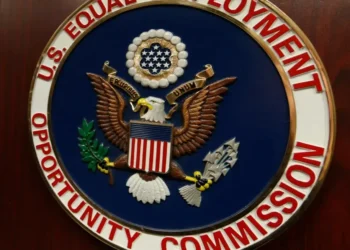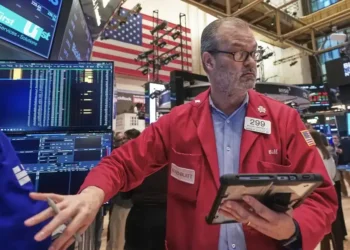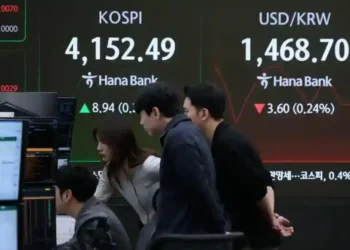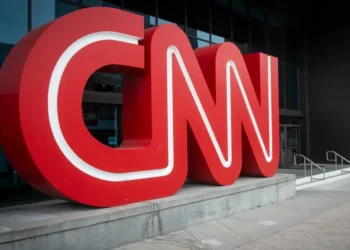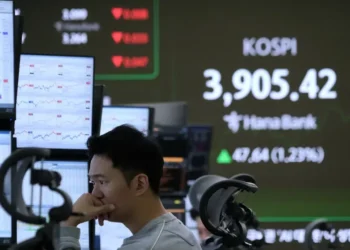Trump Vows to ‘Hire American’ – Yet His Businesses Continue Hiring Foreign Guest Workers
During his presidential campaign, Donald Trump made a bold promise: “We will build American, buy American, and hire American.” However, a recent review of government labor data reveals a discrepancy between his pledge and the hiring practices of his own businesses.
Despite championing American workers, Trump’s businesses—such as the Mar-a-Lago Club, his golf courses, and a Virginia winery—have significantly increased their use of foreign guest workers, reaching record numbers in 2024. This year, Trump’s companies were granted approval to hire 209 foreign workers, nearly double the number from a decade ago.
These guest workers, who include cooks, housekeepers, servers, and desk clerks, are employed through the H-2B visa program, which allows businesses to hire temporary foreign labor when there are insufficient American workers available for the roles.
The Push for Foreign Workers
Trump has argued that the seasonal nature of his properties requires temporary workers, jobs that Americans often do not want. However, some former employees of Trump’s clubs suggest that raising wages or offering additional perks could attract more domestic workers.
Similarly, prominent figures connected to Trump, such as Elon Musk, have also sought foreign workers for their businesses. Musk’s companies, including Tesla and Neuralink, have requested thousands of foreign workers in 2024 alone.
Critics of the H-2B Visa Program
Some critics argue that foreign guest-worker programs, like the H-2B, can harm American workers’ bargaining power. Mark Krikorian, executive director of the Center for Immigration Studies, suggests that these programs give businesses an easy way to avoid offering higher wages or improving working conditions. While he doesn’t fault individual businesses like Trump’s for utilizing the program, he questions whether such visa programs should exist at all.
Krikorian argues that the hospitality industry could adapt by creating programs that attract American workers from areas with fewer seasonal job opportunities, perhaps offering incentives like free airfare or lodging.
The Need for Immigrant Labor in Certain Sectors
Despite these concerns, some experts point out the critical role of foreign-born workers in certain sectors of the economy. In South Florida, where Trump’s Mar-a-Lago Club is located, businesses often rely on guest workers to meet the demands of the bustling tourist and seasonal population. Julia Dattolo, CEO of CareerSource Palm Beach County, notes that many local businesses face challenges filling jobs, especially with low unemployment and high living costs.
Chloe East, an associate professor of economics at the University of Colorado Denver, suggests that while Trump has criticized immigration, he also relies on foreign workers for his businesses. She points out that immigrants play an essential role in many industries, and changes to guest-worker programs could have negative consequences for US businesses.
Trump’s History with Foreign Workers
Trump’s companies have a long history of using foreign guest workers. Since 2008, the Trump Organization has hired over 2,100 foreign workers through the H-2B program, with numbers steadily increasing each year. In 2008, Trump’s companies hired about 100 foreign workers, and by recent years, that number has topped 200 annually.
The positions offered through the program, such as bartenders and servers at Mar-a-Lago, pay modest wages, typically around $16 an hour, with eligibility for overtime, raises, and bonuses. These roles also require background checks, drug tests, and proficiency in English.
The Growing Debate
While Trump’s businesses continue to hire foreign guest workers, the future of such programs is a hot topic of debate. Some of Trump’s political allies, including those involved in the creation of Project 2025, have called for scaling back the H-2B program to prioritize American workers. Trump distanced himself from this proposal during his campaign but later selected a co-author of the plan to lead the Office of Management and Budget.
As the debate over immigration and labor continues, it remains to be seen how Trump’s policies will balance the interests of American workers with the practical demands of seasonal industries that rely on foreign labor.
This article was rewritten by JournosNews.com based on verified reporting from trusted sources. The content has been independently reviewed, fact-checked, and edited for accuracy, neutrality, tone, and global readability in accordance with Google News and AdSense standards.
All opinions, quotes, or statements from contributors, experts, or sourced organizations do not necessarily reflect the views of JournosNews.com. JournosNews.com maintains full editorial independence from any external funders, sponsors, or organizations.
Stay informed with JournosNews.com — your trusted source for verified global reporting and in-depth analysis. Follow us on Google News, BlueSky, and X for real-time updates.


